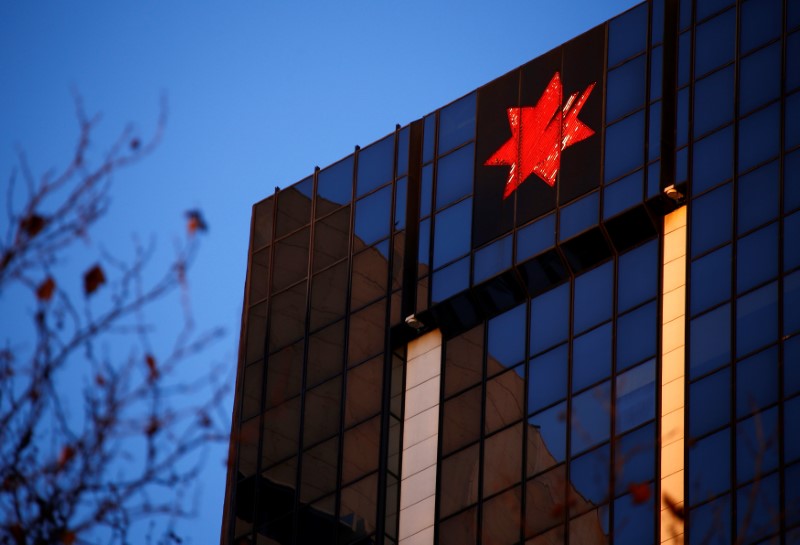By Byron Kaye and Jamie Freed
SYDNEY (Reuters) - A second Australian state on Friday said it was open to charging its own bank tax, raising fears the federal government has opened a "Pandora's box" by slapping a A$6.2 billion ($4.7 billion) levy on major lenders in its May budget.
A day after South Australia state infuriated the banking sector by announcing a A$370 million tax on five big lenders, Western Australia said the option was "attractive" and analysts warned investors to brace for more tax hikes.
"I'm not going to pretend for a moment that it is not an attractive option ... I remain open to it," Ben Wyatt, treasurer of resources-rich Western Australia, told the Australian Broadcasting Corp.
While a state bank tax was not currently being considered, Western Australia was watching how it went in South Australia, he said.
The federal and South Australian taxes will apply to the so-called "big four" banks - Australia and New Zealand Banking Group Ltd (AX:ANZ), Commonwealth Bank of Australia (AX:CBA), National Australia Bank Ltd (AX:NAB) and Westpac Banking Corp (AX:WBC), plus top investment bank Macquarie Group Ltd (AX:MQG).
Shares of ANZ, Commonwealth Bank, National Australia Bank and Macquarie fell about 1 percent on Friday, in a flat overall market, while Westpac was also flat.
"Pandora's Box is officially open," UBS said in a research note. "As suspected, the recent announcement of the Federal Bank Levy has already led to higher taxes on the banks."
Morgan Stanley (NYSE:MS) said in a note to clients: "The threat to bank profitability from governments is emerging faster than expected."
Mark Nathan, a partner at Arnhem Investment Management, which owns bank shares, told Reuters the federal government under former investment banker Prime Minister Malcolm Turnbull had "opened the door".
"But I don't think anybody was expecting anybody else to run through that door," he said.
BANK-LASH
South Australia's move puts more pressure on Turnbull who raised the ire of the banking sector after he announced the federal government's levy with only brief consultation in May.
That move had broad popular support, with anti-bank sentiment running hot following a series of misconduct scandals and years of record profits.
Still reeling from that blow, the Australian Bankers Association (ABA) this week accused South Australia of declaring war on the country's most profitable businesses.
ABA Chief Economist Tony Pearson (LON:PSON) urged other states to "think carefully about the implications for business confidence and investment".
Westpac subsidiary BankSA said plans to employ an additional 150 people in South Australia were now on hold because of the tax. In response, the state's ruling Labor Party said banks were already cutting jobs despite record profits.
Turnbull's ability to push back against South Australia's levy on pro-business grounds was limited by his own support for a far bigger bank tax and his treasurer's calls for lenders to "pony up" to help rein in the budget deficit.
"When a state imposes higher business taxes within its own jurisdiction, is that going to drive investment, support, jobs within that state or is it in fact going to make it less competitive?" he told reporters.
Canberra has said its 0.06 percent tax is low by global standards, with Germany charging the same amount for similar-sized lenders and Britain charging 0.09 percent.
The governments of the three biggest states - New South Wales, Victoria and Queensland - said they had no plans for a bank tax.
